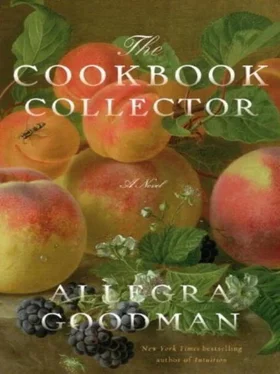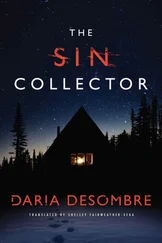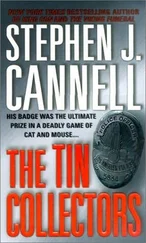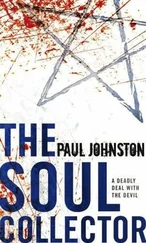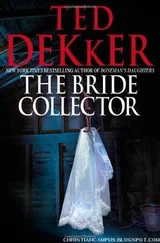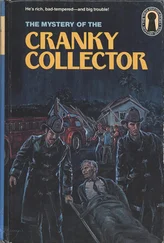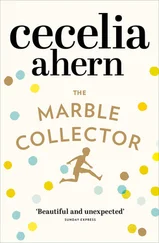But what were these indelible memories? Gillian didn’t say. They lived between the lines, and underneath the letters, in that realm of secrets Jess could not ferret out. And Jess wondered, poetically, whether there had been some great love in her mother’s life—some other man she might have married (for she could not imagine her own father as a figure of romance). And she wondered whether there had been a secret hurt, a sad end to all of Gillian’s might-have-beens. Perhaps her parents forbade her to become a concert pianist, and this was why Gillian played Chopin Waltzes, in requiem. Late at night, in her pajamas, Jess was open to every dramatic possibility, for she had never felt a kinship with her mother before. She had never thought of Gillian as yearning or secretive. Her mother had died young, but now Jess saw that her mother had been young, and that was a different matter altogether. Her letters were no longer prescriptive, but searching, far more powerful now that Jess had a secret of her own.
She lived in the Tree House as before, and did her chores—cooking, cleaning, leafleting, supplying the tree-sitters in the Grove. She attended Rabbi Helfgott’s mysticism classes with Mrs. Gibbs, and typed the minutes for Tree House meetings, where she was official scribe. She slept in Leon’s bed, but he was away in Humboldt County, climbing, demonstrating, organizing, and who knew what else. He did call and ask her when she would come, but he did not call often, nor did he return to get Jess, and the longer Leon stayed away, the easier it became to slip into the collector’s world.
On weekday afternoons, she sat with the cookbooks at George’s table, and she lost herself in recipes for marzipan, illustrations of assorted ices, lists of berries for plucking in each season. She read the cookbooks along with their collector, noting where he paused to draw or quote or simply copy some delicious detail. Take your Angelica when young and tender, which will be about the beginning of May …. She worked with Tom McClintock’s ghost, and where he sighed, she sighed, and where he seemed to smile— Syrup of Maiden-hair!! —she smiled. And she examined each line drawing of the woman he adored, a lady with wide-set eyes, long wavy hair, small feet, and pointed toes. Jess was beginning to dream about this woman; she felt she knew her; she thought she almost knew her name.
She glided through the house, and ate the plums George left. She cut melons in the kitchen, and ate the dripping slices, cold and sweet. Be careful with this knife , he wrote on one of her note cards. Carefully, she slid George’s steel knife into round cantaloupe and honeydew and galia melons. And if she waited long enough, he came home. She listened for him now, and met him at the door. She stood on his feet so she could reach, and wrapped her arms around his broad shoulders, and if he came from running, she licked his salt skin, and they kissed until he took her hand and led her upstairs. But they didn’t plan to see each other. They talked of everything else and kept their time a secret even from themselves; the food they shared, the wine they drank, the Bach he played for her, music rough and smooth.
He took her to Point Reyes, and they drove through fields of tall grass and wildflowers. Along the coast they smelled a mix of salt and eucalyptus, and as they sped down Sir Francis Drake Highway, they passed a tavern called the Golden Hind, but they did not stop there. They ate a picnic dinner at a beach called Heart’s Desire. At dusk when it was time to go, they lingered, and Jess took off her sandals and walked barefoot in the cove on Tomales Bay. The bay was round, green-gray under the round clear sky. Slick under her feet, sea grass tangled in her toes. She called to George, “It’s warm. Come in with me.”
He said, “No, it’s late. We should drive back.”
“Come on,” she said. “Just get your feet wet.”
She stretched out her arms to him until he unlaced his shoes and took off his socks to come and kiss her in the shallow water.
He took her to Santa Cruz, and to Santa Rosa, and to Half Moon Bay. He took her walking with him deep in Tilden Park, but only where he knew that they would be alone.
They were living in a bubble of their own, and when one of them began to speak of it, the other murmured, “No.” They were improbable, and at the same time all too predictable. He did not tell Nick or Raj. She did not confess to Leon, or so much as hint to Emily. They scarcely admitted to each other what they were doing. Even a single word could break the spell, and so they kissed instead of speaking, and drank instead of thinking. They heard the mermaids singing. When human voices woke them, they would drown.
Each had moments of lucidity. You have to stop , Jess told herself. You need to see Leon. You need to go away and think .
Slow down , George told himself. This is intoxicating .
But they did not stop. They only delayed a little. He walked through the door and she said, “I have to show you this,” and she pulled him into the dining room to unveil that day’s discovery. A recipe for pecokys , which schul ben pyarboyld and lardyd and etyn with gyngenyr . And then she showed him instructions for broiling larks, and then McClintock’s handwritten quotations from Gertrude Stein.
“Sweet sweet sweet sweet sweet tea,” she read aloud as George stood behind her. Arms around her waist, he was unbuttoning her shirt. “When the ancient light grey is clean it is yellow, it is a silver seller.”
She sat on the table with the slip of paper in her hand. “Doesn’t silver seller make you think of salt?”
“Not really,” he murmured, kneeling on the chair, kissing her bare skin.
“Her poetry wasn’t abstract at all.” She felt his breath and his rough tongue. “Don’t you think Tender Buttons is really about …?”
“Yes.”
Working in the August afternoons, she wondered what he would bring home for dinner, what strange fruit, what curious greens, or salty sea beans. He brought her plums, and Asian pears, and almonds, and she showed him her discoveries.
“Look at this,” she told George, dancing into his arms.
The volume was so slight that they had missed it in their first assessment. In fact, she found it tucked inside a larger book. Scottish, dated 1736, it was one of those palm-sized cookbooks, a handbook that fit literally in the hand. Its recipes were terse, not terribly poetic, nor was the book illustrated, except for some decoration on the first page, a little head of Bacchus, tame enough to be a house pet, surrounded by a couple of clumsy birds and vines. Why then was this book so stuffed with notes?
He laughed when he saw the title. Mrs. McLintock’s Receipts for Cookery and Pastry-Work . “You think Tom McClintock felt a kinship?”
“It’s rare,” she said.
“How rare?”
“It’s the first Scottish cookbook by a woman. I e-mailed the University of Aberdeen. There are only two known copies in the world, and they’re both in Glasgow.”
This was serious. Silently he began to calculate how much a book like this would be worth to the Schlesinger, to the Getty, to those private collectors who would bid for it.
“No one knows about this one,” she told him. “This is now the third!”
“Jess,” he said.
“We should call reporters,” she declared. “We should write an article.”
“You should write the article,” he said.
“But first I have to understand it better.”
“What do you mean?”
She couldn’t quite explain. She wanted to know the cookbook’s secret life. For days she studied it. She gazed at Mrs. McLintock’s name so long that in her mind the letters rearranged themselves: lock, lint, clint, clit, cock, clock … McClintock. McLintock . She imagined the two fit together, but she found no clues about McClintock in McLintock, and the collector’s love remained a mystery.
Читать дальше
